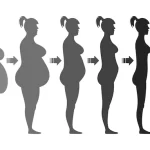The path of a dependency is usually a complicated path that goes through several stages. Inpatient or outpatient setting supports you in this way so that your relatives or acquaintances who are in this situation return to lead a happy and abstemious life. For this, you will find important information about the 4 basic phases of the treatment of addiction.The 4 phases of addiction treatment:
Motivation Phase
Understanding dependency and deciding to seek support is important for treatment.When you already notice the symptoms or when you take seriously the indications of your environment, you can seek a first help, for example, by visiting a GP or another type of doctor you trust. There it is usually possible to establish a diagnosis through questions about addictive behavior, the use of brief questionnaires, a physical examination, a laboratory diagnosis and, if necessary, abdominal ultrasounds. Likewise, the subsequent treatment of the disease, for example, the choice of a therapy or even internment in an addiction treatment clinic, can be discussed at this point. If necessary, the doctor gives advice to reduce or stop the use of the addictive substance or perform a first brief intervention related to the addictive substance. Visiting an addiction treatment center is also a possibility to find more help.
Advice for relatives
In principle, it must be borne in mind that the motivation for the treatment should leave the affected person as far as possible. It is usually not convenient, as discussed above, to abandon the addicted partner or to separate from her. On the contrary, it has been recognized that the support of the couple and the hope of maintaining the relationship are essential motivational factors for the addicted person. Family members only achieve this by convincing the affected person without pressing it if possible. For this they have to be empathetic, listen, appreciate the first steps, encourage and reinforce motivation. In individual cases where the disease is at an advanced stage, surely the pressure can also be helpful, but in most cases it causes a defensive attitude in the affected person.
Experience Matters
Experience has shown that many affected people opt for treatment unfortunately after a long process, after having overcome their ambivalence. This often happens when the body and psyche are already severely affected.
All their social life no longer exists practically or they have enormous consequences. In addition to physical and mental illnesses, the trigger for abstinence from alcohol may be, for example, loss of driving license, loss of work, support of therapy, separation of the partner or threat of separation from alcohol.
Support from Family members
Family and friends can support the affected person, not behaving as codependents, but being by Inpatient or outpatient settingtheir side (“I am me and you are you!. On the other hand, co-dependency means hiding addiction, excusing and diminishing the importance of faults and accidents, or controlling the partner, accusing her, attacking her or humiliating her. Codependents enable or avoid treatment. But the affected person must be motivated to leave it.








It also has a range of Cartoon T-shirts from Disney.